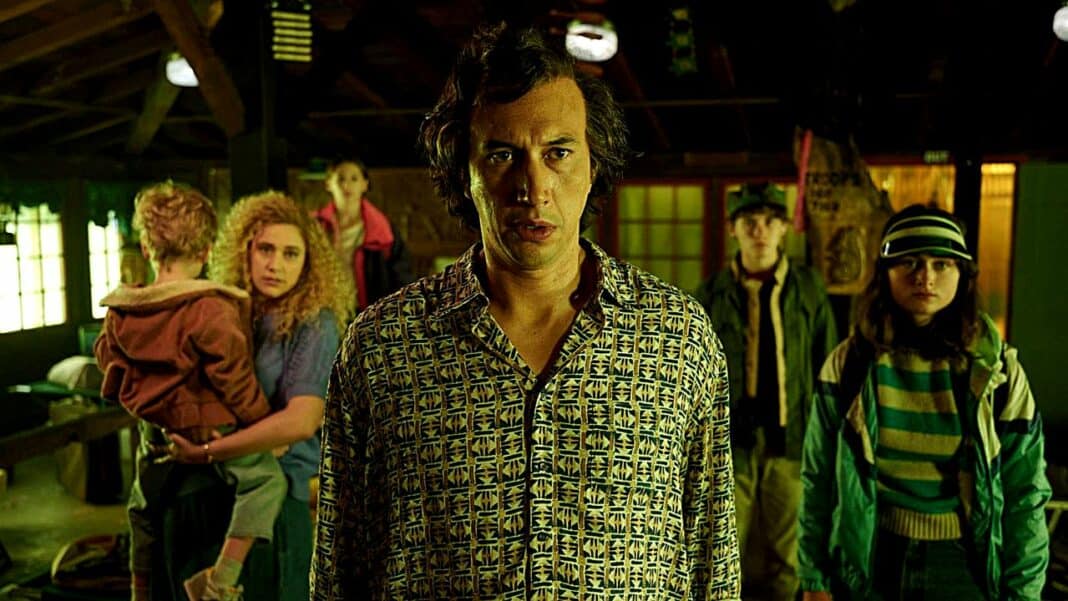Despite his very privileged upbringing, Noah Baumbach usually finds his way into my heart. His personal tales of love, family, and relationships remind me of the best parts of Woody Allen’s movies with none of his vile baggage. White Noise is kind of a swing for Baumbach, in that the source material is not his own. What I learned is maybe Baumbach is best using his own voice. And he really loves the grocery store?
Or maybe Jack Gladney (Adam Driver) does. Jack is a professor of Hitler studies (despite hilariously not speaking any German) at the College-on-the-Hill in the 1980s. Jack is married to Babette (Greta Gerwig), his 4th wife, and the couple have a blended mix of kids, including Babette’s daughter Denise (Raffey Cassidy), Jack’s kids Heinrich (Sam Nivola) and Steffie (May Nivola), and the couple’s own Wilder. While teaching at the college with his friend Professor Murray Siskind (Don Cheadle) and the brilliant Winnie Richards (Jodie Turner-Smith), an environmental disaster occurs, putting the already on edge Gladney family under huge stress to hold together while the world falls apart around them.
Directorial temptation. After a career of personal empathetic small tales, Noah Baumbach must have been monetarily dazzled by Netflix into bringing White Noise to life. The technical aspects of this movie shine brightest, with Baumbach investing most of his time bringing Don DeLillo’s novel to life. The A&P grocery store is capitalist nirvana: a structured place filled with worldly delights bathed in a gauzy artificially lit glow. The environmental disaster is certainly sinister looking enough, filled with black and red menace. Baumbach even embellishes further by adding in a car chase just so he can get all of his (I’m presuming) directorial fantasies expressed. His direction gives White Noise a surreal feel, removing it one layer from reality for the audience.
But that surreality unfortunately also bleeds into the script adaptation. Don DeLillo and Noah Baumbach are incongruous creative bedfellows, meaning the dialogue doesn’t quite fit together. Adam Driver certainly tries to will it: he’s the best at capturing the tonal and emotional swerving the story takes. I also liked Raffey Cassidy and Sam Nivola’s takes on the Gladney kids: very matter of fact and just a tad unnerving and exhausting. Baumbach’s biggest failing is in the 2nd act, revolving around Greta Gerwig’s Babette. Even though he’s marred to Gerwig, Baumbach can’t write her character super well; maybe that’s on the page, but the performance isn’t super great either, as Gerwig and Driver have no real chemistry to earn what the later segments of the movie need to work. Watching White Noise it becomes clear that Noah Baumbach understands the visual storytelling of Dom DeLillo, but can’t quite grasp his emotional storytelling, leaving the audience trying to fit pieces into a puzzle that doesn’t fit together.
White Noise isn’t a red alert that Noah Baumbach is losing his touch. No, it’s simply a swing and a miss when it comes to adapting material that isn’t his own. Noah, I hope you take your lessons making White Noise and build your own original script with it, possibly finding that sweet spot of technically awesome and emotionally touching. Or what I like to call, Everything Everywhere All At Once.

